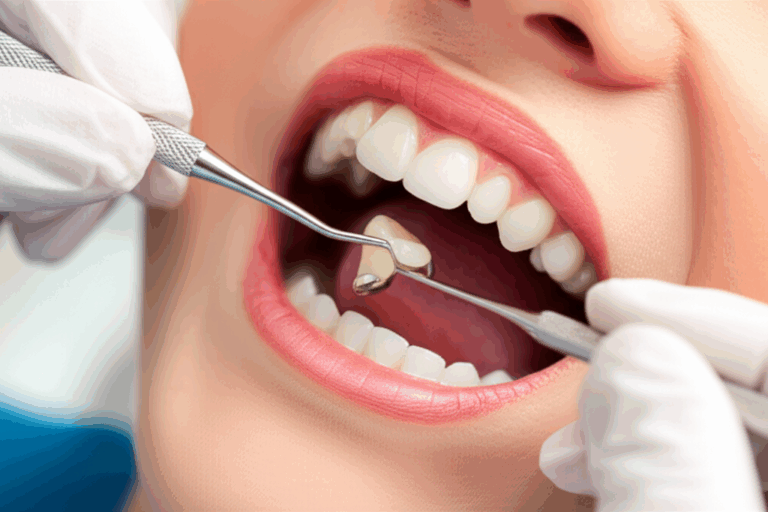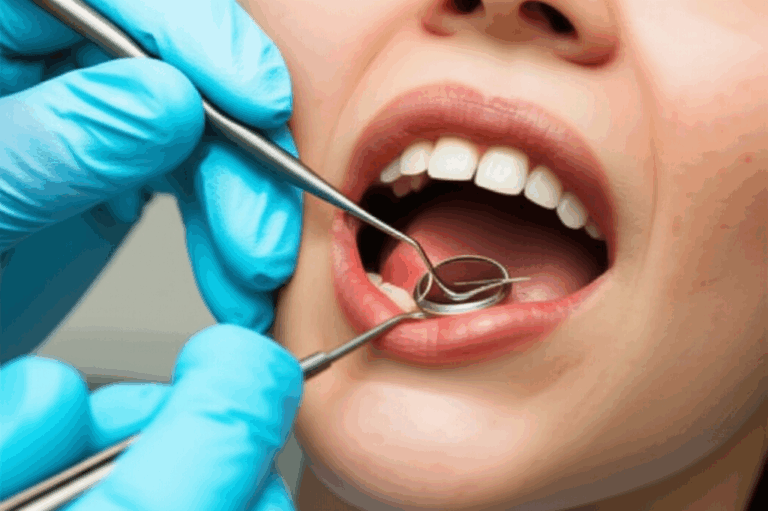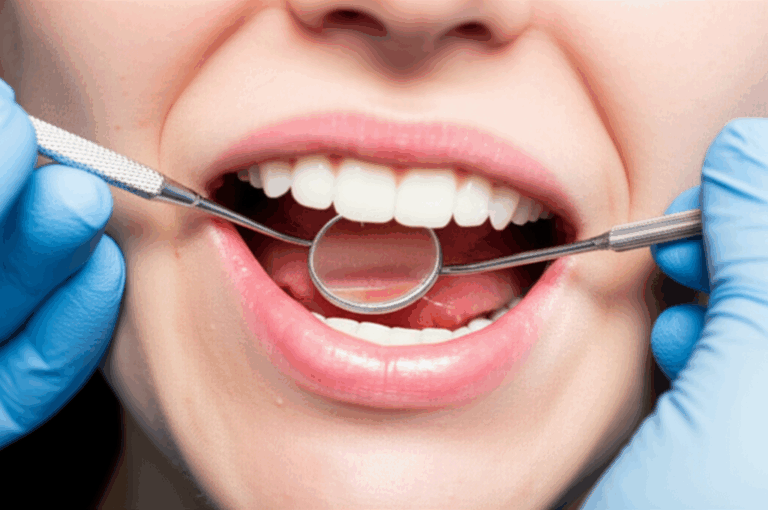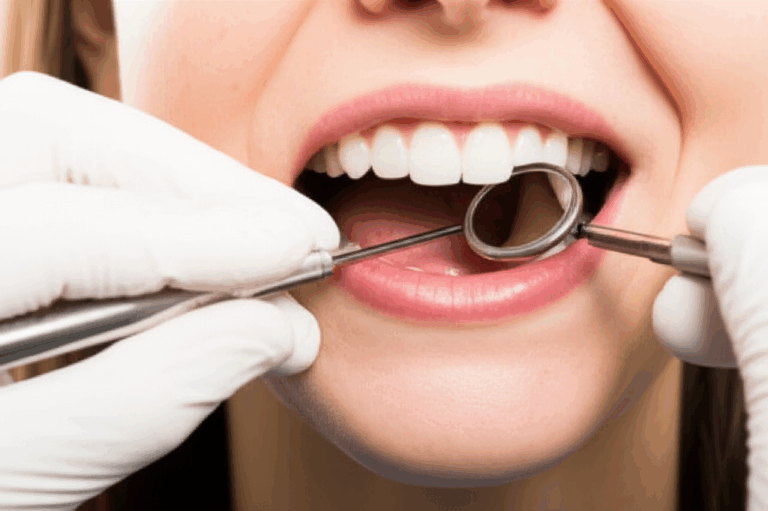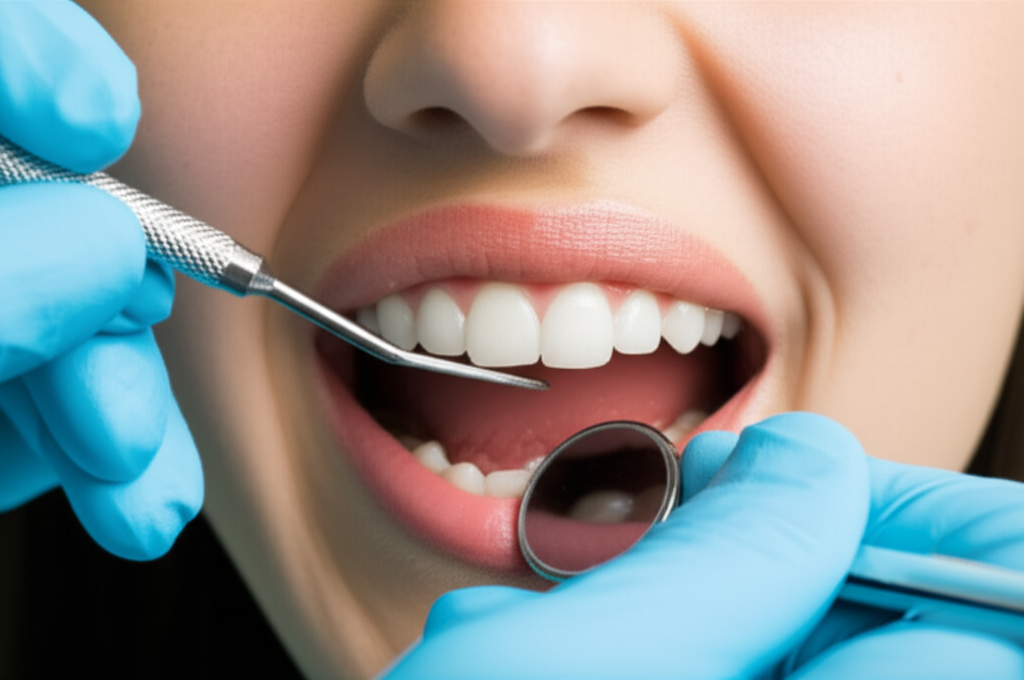
Can a Dentist Crack Your Tooth? Understanding the Risks, Signs, and What You Can Do
We understand—it’s not easy sitting in the dentist chair, feeling nervous. Maybe you just finished getting work done and now you have a sharp pain when you bite down. Or maybe someone you know said, “My dentist cracked my tooth!” and you wonder: Can this really happen? Is my dentist really putting my teeth in danger?
Here’s the straight answer: Yes, a dentist can accidentally crack a tooth while working on you, but it’s very rare and usually not anyone’s fault. Most dentists know what they’re doing and are careful to save your teeth. Still, cracks can happen—and if they do, you should know why, what to do, and how to keep your smile safe.
In This Article
- Can a Dentist Accidentally Crack a Tooth?
- Common Dental Procedures Where a Tooth Can Crack
- Factors That Raise the Risk
- Signs and Symptoms to Watch For
- What to Do If You Think Your Tooth Was Cracked
- How to Lower Your Risks: Dentist and Patient Tips
- Quick Answers: FAQs
- Key Takeaways
Can a Dentist Accidentally Crack a Tooth? (The Direct Answer)
Question
“Can a dentist really crack my tooth?”
Answer
Yes—but it doesn’t happen much. Dentists are trained for years and use methods to keep your teeth safe. But teeth aren’t unbreakable. Sometimes, even with careful work, a tooth can crack while or after a dentist works on it. This usually isn’t because the dentist did something wrong.
Why Does It Happen?
- Pressure: Taking out old fillings, putting on a crown, or pulling out teeth can put a lot of pressure on the tooth or the teeth around it.
- Already Weak: Think about a tree that already has a small crack. If you push it more, it might break. Teeth are just like that—if one is already weak, it can crack easier.
- Dental Tools: The things dentists use—like drills—can sometimes cause or make tiny cracks worse, especially in weak teeth.
Simply put? Most cracks just happen by accident. You can even crack a tooth chewing something hard at home, not just at the dentist.
Common Dental Procedures Where a Tooth May Crack
Think of your teeth like brick houses. Most dental work is more like fixing up the house than tearing it down! Still, some fix-ups are riskier than others:
1. Large Filling Replacements or Removals
- Why the risk? Taking out big, old fillings—especially the old silver ones—sometimes leaves what’s left of the tooth thin or ready to break.
- Extra pressure can cause cracks, especially in big back teeth.
2. Crown Preparations
- Heavy drilling or taking off old crowns can stress the tooth and make it thinner.
- If there are already big fillings or cracks, it’s an even bigger risk.
3. Root Canal Treatment
- Root canals save teeth with deep holes or infection, but this also means the tooth is weak.
- Tools in the root, or packing the tooth, may push a weak tooth too far.
4. Tooth Extractions
- Pulling one tooth can sometimes put too much pressure on the tooth next to it.
- Sometimes, the tooth beside the pulled one chips or cracks.
5. Deep Cleanings (Scaling and Root Planing)
- Very rare, but if the teeth are already weak, hard cleaning can cause small cracks.
6. Bite or Occlusal Adjustments
- If your dentist adjusts your bite, it could put too much pressure on a weak spot.
Note: Most cracks after dental work don’t show up right away. Sometimes, it can be weeks or months before you feel it!
Factors That Increase the Risk of Your Tooth Cracking
It’s not just about what your dentist does; your teeth’s history matters too. Here’s what makes a tooth more likely to crack:
Pre-existing Tooth Problems
- Old, Big Fillings: Teeth with big silver fillings are more likely to break.
- Lots of Cavities or Past Injuries: Teeth with a rough past are always a bit weaker.
- Tiny Cracks Already (“Craze Lines”): Small cracks you can’t even see can get worse.
- Bruxism (Grinding Your Teeth): If you grind your teeth, they’re more likely to crack.
Dental Work Factors
- Using Too Much Force: Drilling too hard, or using too much pressure, can crack a weak tooth.
- Big Temperature Changes: Using water that’s too hot or cold can shock a weak tooth.
- Not Enough Support: If the dentist isn’t careful about supporting the tooth or nearby teeth, it can put too much stress on one.
Signs and Symptoms of a Cracked Tooth After Dental Work
How do you know if you have a cracked tooth, and not just normal pain after a dentist visit? Look for these:
Pain
- Sharp pain when biting or letting go—classic crack sign. The pain might only be on certain foods or spots.
- Sensitive to hot, cold, or sweet food or drinks—if you get a zap from ice cream or soup.
- Comes and goes pain—the pain can be confusing.
- Swelling or tenderness near the tooth or gums—not just normal soreness, but pain that sticks around or gets worse.
- Deep ache or throbbing feeling—if there’s a big crack.
What You See or Feel
- See a crack or line—sometimes you can see it, but not always.
- A bump or rough spot—it can feel sharp or jagged with your tongue.
Tip: Most cracks you can’t see, and sometimes pain is your only clue. When in doubt, call your dentist!
What to Do If You Suspect Your Tooth Was Cracked by a Dentist
Don’t worry—cracked teeth can usually be fixed. Here’s what to do:
First Steps
Get a Second Opinion
Cracks can be hard to find, even with X-rays. If you want to be sure, ask to see a root canal specialist (endodontist). They have special tools to spot cracks.
Talk About Fixing It
It depends how bad the crack is:
- Bonding: Small cracks can get a tooth-colored filling.
- Crown: A tooth that’s cracked but not too badly can get a crown to hold it together.
- Root Canal: If the crack reaches the nerve, you might need a root canal.
- Extraction: If the crack goes too deep, they may have to remove the tooth.
Know Your Rights
Cracks can happen even with good care. But if a dentist wasn’t careful, used too much force, or didn’t warn you about risks you had, you might have a case for a complaint. Most of the time, it’s nobody’s fault—just a risk with teeth that are already weak.
How to Lower Your Risk (Dentist and Patient Tips)
Let’s talk about how to stop this from happening in the first place:
What Dentists Can Do
- Careful check and X-rays: Find weak teeth before any work starts.
- Gentle touch: Use the right tools and don’t push too hard, especially on weaker teeth.
- Keep you informed: Let you know the risks, especially if your teeth aren’t strong.
What You Can Do
- Be honest about your teeth: Tell your dentist if you grind teeth, if you’ve cracked a tooth before, or if you feel pain when chewing.
- Follow instructions after dental work: Chew on the other side, avoid hard foods, go back as scheduled.
- Regular dentist visits: Many cracks start as small lines. Finding them early stops bigger problems later.
A Closer Look: Real Stats and Facts
Some numbers to help you understand:
- Cracked teeth are common: About 1 in 4 adults will have a noticeable tooth crack at some point.
- Most cracks are in teeth with big, old fillings: Around 60-70% of cracks happen here.
- Cracked tooth syndrome is 5-10% of dental pain: Not all pain after the dentist is a crack!
- After dental work, cracks are rare: Only about 1-5% of teeth crack after big fillings or new crowns.
- Root canal risk: Cracks after root canals happen in 0.2-4% of cases, almost always in already weak teeth.
- Grinding is a big cause: Around 30% of cracks come from grinding at night.
- Hardly any legal claims: Less than 0.1% of cracked teeth after dental work end up as a complaint or lawsuit.
Who’s at Most Risk? (The Good Candidate Section)
Not everyone has the same chance of cracking a tooth at the dentist. Here’s what to look for:
Higher Risk
- Big or old metal fillings
- Tooth has had a root canal
- You grind your teeth
- Past falls or tooth injuries
- Older people (enamel gets thinner as you get older)
Lower Risk
- Mostly healthy and untouched teeth
- You do what your dentist says
- You wear a night guard if you grind teeth
- Regular dentist exams and catch small cracks early
If you fall into the high-risk group, ask your dentist what extra steps they’re taking for you!
Your Healthy Takeaway (Key Points)
Here’s what to remember:
- Yes, dentists can sometimes crack a tooth, but it’s rare, accidental, and often happens if your tooth was already weak.
- Big, old fillings or prior small cracks are the most common cause, not the dentist.
- Pain or sensitivity after dental work isn’t always a crack—but if it’s sharp, sticks around, or feels “off,” call your dentist.
- Talk to your dentist! Tell them your history and how you feel.
- Dentists can fix cracked teeth. From small fixes to crowns to pulling the tooth, your dentist has a solution.
The best thing is not to ignore pain or wait for it to go away. Acting quickly is your best chance to save your tooth and your grin.
Frequently Asked Questions (FAQs)
Is a hairline crack serious?
Tiny cracks on the outside (called “craze lines”) are common and not usually a problem. But if they start hurting or get deeper, go to your dentist.
Can a dentist fix a cracked tooth?
Yes! Small cracks can be filled, bigger ones can get a crown, and if the nerve is hurt, sometimes you need a root canal.
Will insurance pay if my tooth cracked at the dentist?
Most dental insurance covers cracked tooth repairs, no matter how it happened, but check your plan. If there may have been a mistake, talk to your dentist and insurer.
How do dentists find cracks you can’t see?
Dentists use X-rays, special lights, stains, and sometimes microscopes. Many times, your story and pain help more than any tool!
What’s the difference between a craze line and a cracked tooth?
Craze lines are small, shallow cracks on the outer part of the tooth. Cracked teeth usually go deeper and hurt more.
Empower Yourself: Next Steps and Resources
What should you do next? Here’s your checklist:
Call your dentist and say what you feel.
Write down when it hurts and what makes it worse. Share this with your dentist.
Don’t be shy about asking for a clear explanation, another dentist’s opinion, or a referral to a root canal specialist.
Let your dentist know if you’ve had cracks, big fillings, or injuries before. And if you grind your teeth, ask about a custom night guard from a night guard dental lab.
If you want to know more about how dental crowns, bridges, or other fixes are made, digital dental labs and crown and bridge labs help dentists get repairs that fit well and stop future cracks.
Bonus: Real-World Examples
- Case A: Someone got a big, old filling replaced. A few weeks later, lots of pain! Turned out, a crack started during the filling removal. The fix? A crown saved the tooth.
- Case B: Pulling a tough tooth accidentally chipped its neighbor. The dentist smoothed the edge and it healed fine.
- Case C: Months after a root canal, biting down hurt. X-rays showed a deep crack—sadly, the tooth had to come out and be replaced.
Your smile matters.
Dental care has some risks, but knowing what those are and talking with your dentist can make a big difference. Don’t let fear stop you from getting care or from asking questions.
For the best advice about fixing or protecting teeth, your dentist and good dental labs are the clear choice for answers that help.

